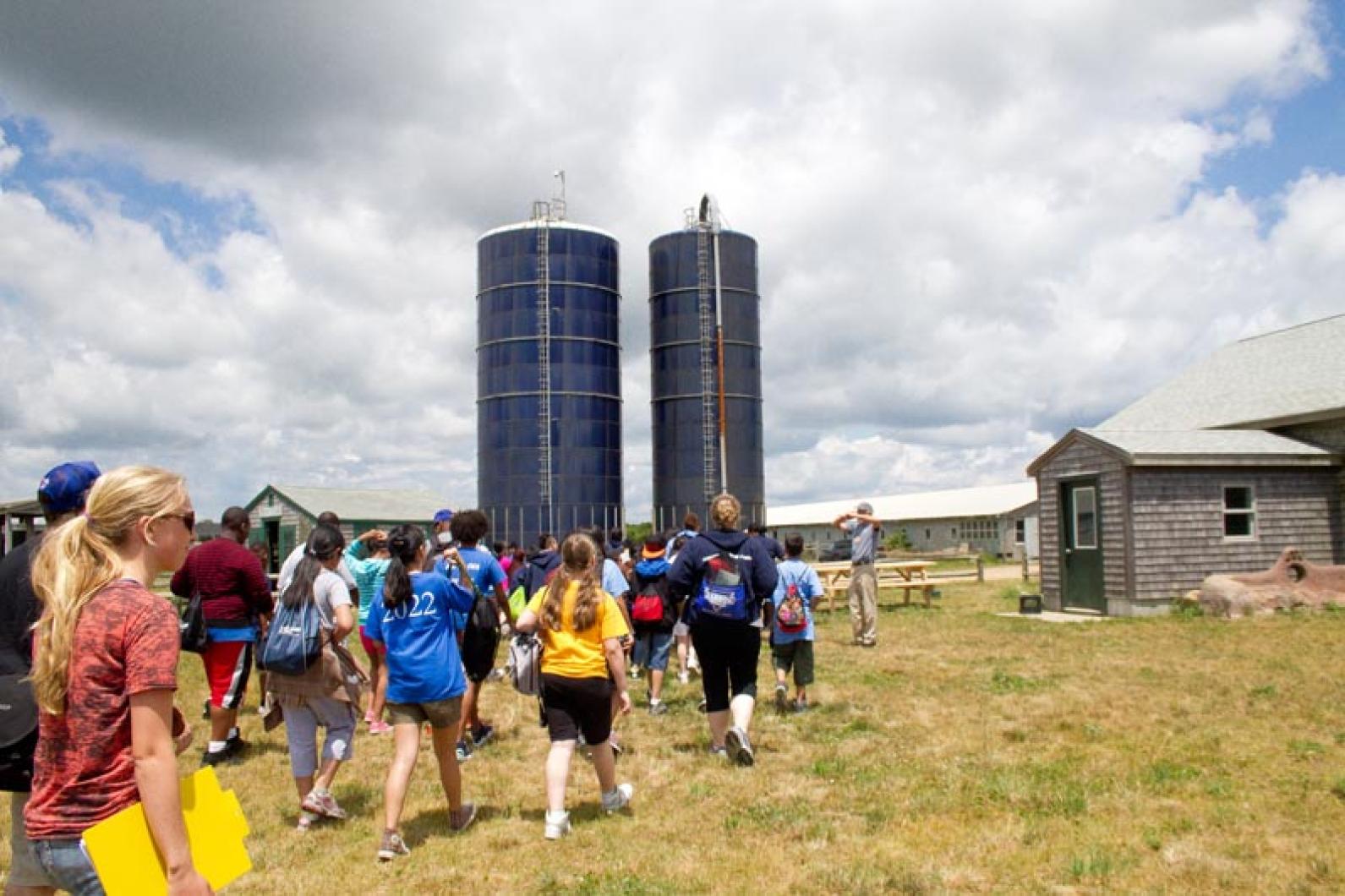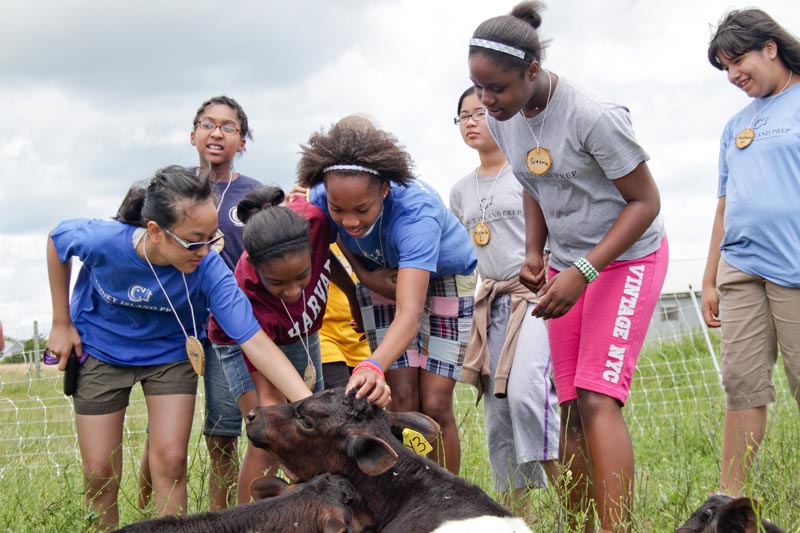A group of middle school girls cautiously approached a pile of Dutch belted calves at the Farm Institute one morning last week, dodging large piles of dung and tiptoeing their way closer.
“They’re big,” one girl said of the seven-week-old calves.
“They’re cute,” said another.
“This one is especially friendly,” farm educator Emily Palena said. “The worst thing she’ll do is lick you.”
One by one they leaned over and gently placed their hands on top of the animals’ heads, dissolving into giggles.
It was one of the many first experiences students from Coney Island Prep School in Brooklyn, N.Y., would have during their day at the farm. Coney Island Prep was the fourth school of the season to visit the Farm Institute in Katama through its residential programs. The program is in its fourth year of hosting city kids from New York, Boston and Providence. Over the course of one to three days, students take part in farm chores, mucking out stalls, weeding, building infrastructure, working with animals and harvesting and preparing dinner.
Executive director Jon Previant said the residential programs relate directly to the farm’s founding philosophy.
“The goal of the program is consistent with our mission, which is to educate and engage people about where their food comes from, how it’s grown and how it gets harvested and all the labor and concepts that are behind supplying food to people,” he said. “It’s practical magic what we do — we’re transformers; we are involved in the practice of practical magic, and if we do it right, not only do we transform a seed into a plant that we can eat or watch an animal grow, we change each other and it’s magical.”
The residential program started in early June, with four consecutive visits of 65 kids or more on the farm for several weeks. Students start the morning with an introduction from Sidney Morris, the farm’s educational coordinator.
“You’re going to be farmers for the day . . . and your primary job as a farmer is to be a caretaker,” Mr. Morris told the Coney Island Prep students who crowded around him in a circle. “It’s a cycle that goes around and comes back.”
The students were full of questions. How many farms are there on the Vineyard? Where do the animals go in the winter? At what age do you kill the animals for food? Are we going to kill animals?
Later, Ms. Palena remarked on the enthusiasm. Many of these kids had never been out of the city, she said.
“They come here with an air of total excitement,” Ms. Palena said. “You see this tangible growth with them . . . the first day they didn’t want to even look at the chickens and by the end of it they were grabbing eggs. It was very obvious to see the growth that was happening with them.”
Tara McNerney, also a farm educator, agreed. “Getting that tangible experience of ‘I touched a calf, I held a chicken, I ate the eggs I collected’ — those tangible memories are the really important things,” she said.
Groups are designated chores, including the rotating task of preparing dinner for their fellow students.
Ms. Palena recalled one student who was “really into science books,” and had memorized different types of plants and vegetables.
“He said, ‘I’ve seen kale in books and read about it but I’ve never seen it [in person].’ He was so excited because he had read about all of these plants but he’d never seen them or tasted them. He was absolutely ecstatic.”
The student picked sorrel to bring back to his mother, who was from the Caribbean and ate it frequently there.
The residential programs also include outings such as scavenger hunts, trips to the Gay Head Cliffs and afternoons at the beach.
At the end of their session, Mr. Morris called the group back together and asked them to describe their favorite moment in two words. Fed pigs, got eggs, saw goose were a few of the answers.
More groups will come in the fall. The students stay at the American Youth Hostel in West Tisbury or at the Martha’s Vineyard Family Campground.
Mr. Morris said the goals of the residential program are modest.
“It is critically important that people in all places understand the need to grow healthy food for the entire population of the world, and I send them back with a mission of growing food in Brooklyn . . . we all know that we’re not going to be able to feed people in cities unless they take part,” he said. “It’s important for them to know it’s possible to grow healthy food and they are all entitled to it and hopefully feel empowered to do it. That’s what we’re aiming for.”
This column is meant to reflect all aspects of agriculture and farm life on the Vineyard. Remy Tumin may be contacted at 508-627-4311, extension 120, or e-mail her at rtumin@mvgazette.com.






Comments
Comment policy »